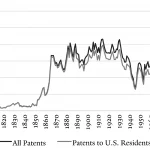
The conversation recently had started, “Why do venture capitalists invest in startups if many of them are losing money and destroying value?” and I had to pause when I heard the point of view because I couldn’t even rationalize how someone thinks that way. Then of course it dawned on me that lately there has been a horrific rash of *VC Bad* propaganda and misinformation; truly, take a look:
- How Venture Capitalists Are Deforming Capitalism
- Toxic VC and the marginal-dollar problem
- Why Venture Capital doesn’t build the things we really need
- An Unusually Candid VC Explains Why VCs Are a Bad Idea
- How venture capital is hurting the economy
Before you misunderstand me, read those articles because there is a tremendous wealth of knowledge and perspective in them, about what Venture Capital really is and the role that it plays. My point, is that in our era of twitter headlines, people are reading those kinds of headlines alone, frustrated that they can’t raise capital (often unwittingly for valid reasons), and are demanding that VC change; that it’s bad and not working.
With that point of view, I revisited the question and realized that it stems from a misunderstanding, start with just this, “Why do venture capitalists invest in startups if many of them are losing money?” Wait… do you think Venture Capitalists invest based on revenues in companies, or worse, profitability?? Who has been feeding you that line of bull?
Why do venture capitalists invest in startups if many of them are losing money and destroying value?
“Venture” Capitalist
As in adventure.
Venture is a noun: a risky or daring journey or undertaking.
Venture is also a verb, to venture: dare to do something or go somewhere that may be dangerous or unpleasant.
I share that because society has grossly misled what Venture Capitalist means, in our era of being polite and accepting any use of word for any purpose. Venture Capitalist is NOT a business investor. It doesn’t refer to a partner. It’s not an Angel Investor (that’s something distinctly different).
So, why do venture capitalists invest in startups if many of them are losing money and destroying value?
Because that’s the role of venture capital in our economy.
Not to fund businesses. Not to finance R&D. Venture capital doesn’t pour into pharmaceutical research nor is it there so you can start a restaurant.
There is a type of “venture” that is incredibly high risk but which results in most wealth creation and innovation: the startup.
Those articles shared are not warning about Venture Capital, they’re warnings about people who claim to be VCs or Angel investors, they’re warnings about what VC is really about and what it expects; their provocative headlines are meant to teach by exposing the causes for caution – not that VC is actually destroying the economy.
A startup is NOT a new business nor is a new business a startup. A startup is a temporary venture for which the business model is unknown and needs to be trialed, validated, tested, implemented, and optimized.
The model! Not the tech. Not the product.
A startup is a new venture in which the model is unknown.
This can be tech, fashion, CPG, or really in any sector. The key distinction of startup is NOT that it’s new nor that it’s tech, but that the model isn’t known.
You want to start a ridesharing app in your city? That would NOT be a startup; because the model for that is now known.
Venture Capital funds the startup, not the new app.
And since the model is unknown, it is known and accepted that there is an exceptionally high rate of misfires. Fails.
That’s the work.
If we’re going to uncover new models, they have to be attempted; and since we can’t just R&D our way into new models that work, they have to be tried, and mostly fail.
And those efforts require resources: human and capital.
Thus, an opportunity for investors.
Venture Capitalist refers to the person who manages a fund comprised of many capital sources, intended for startups.
An Angel is an individual focused on startups. An investor or business partner is what we’d call people investing in businesses.
So Venture Capitalists take risks investing in such high rate of fail ventures because…
Wait for it…
Wealthy people, trusts, foundations, and other funds, pool their capital into Venture Capital Funds, and the General Partners and Principals of those funds are PAID to operate them; they’re called Venture Capitalists.
And why does anyone bother? Why do it at all?
Because startups have the potential of delivering 20x returns. Those are unheard of returns in almost any other investment opportunity.
The cost of those returns? That 90% fail.
Simple math, overly simplistic, but why it works:
- $1,000,000 invested in 9 startups
- $100,000 went to pay the VCs
- 9 startups got $100,000 each
- 8 of those will fail. Gone. Poof.
- 1 succeeds and on $100k in, kicks back $2,000,000 (20x)
Positive ROI. Yay! Everyone celebrates with a boisterous and over extended holiday party.
Now to be clear, my simple example is NOT how it literally works, I’ve just found it to be the basic way to explain it so it makes sense to people. Reality is much more complicated and the odds aren’t even as good as that implies.
But hopefully you get it.
Yes, you can just invest in businesses, and only 40% will fail. And you won’t get near a 20x possible return.
Too, by the way, you can bet in a casino, and even there, you can get to about a 51% rate of failing.
VC is worse, as a percentage of wins. It invests in ventures: startups, because it’s seeking the greater than normal returns, in order to overcome the losses.
“Why do venture capitalists invest in startups if many of them are losing money?” If you think Venture Capital is for operating businesses and profitable companies, you’ve been misled; seek a business investors for your work. If you’re taking great risk to invent an industry anew, if you don’t have customers but you have the very real potential to disrupt an industry and create wealth and jobs, the venture capitalist is your friend, and they’re doing precisely what they’re supposed to be doing.
—
Footnote:
“Destroying value” is a horrible misunderstood perspective on this.
None of that destroys value, it creates more value than just about anything.
Failed startups create value. They weed out the things that won’t work so others don’t try it. They train entrepreneurs to find success in the future. They develop IP that though startup might fail, a company or investor might use it again. They create acquisitions.
In failure we learn, more than in success.
The entire sector of our economy, comprised of Angels, entrepreneurs, and VCs, likely creates more value for the world than anything else humans do.





These are R&D costs that our society pays to progress.
100%
I really wrestled with making that distinction too though and calling out R&D in the article as something different, on purpose.
R&D is associated in people’s minds with the science or engineering. Hypothesis, research, test, develop it. And THEN commercialize it.
Startups/founders too often make the massive mistake of thinking their process is the same (usually product or engineer oriented founders do that). Startups are indeed, hypothesis, research, test… But that this point, start sales, commercialization, growth, and THEN develop it. Too many startups are more like R&D, and founders get frustrated when investors won’t fund the thing they built (generally because there isn’t sufficient market or competitive advantage built with which to do so)
Multiple startups can fail in a space which can signal more than don’t do it – rather don’t do it now or don’t do it here or don’t do it this way. Figuring out how to share widely lessons learnt has immense value; most startups lessons are buried & forgotten.
Agree. A lot goes into coming up short. The market can be there. The idea can be solid. But if the execution – team and/or product – lacks that doesn’t mean the market and idea are bad.
Look at Apple. How many truly original ideas and products did they have? There were MP3 players before the iPod. That touch experience led to the iPhone. On the other hand, both Amazon and Microsoft tried to do a phone and tanked. Perhaps a phone isn’t a startup / entrepreneurial idea, but the point is, execution (product and team) matters.
Well said, unfortunately we have started to move towards profit being a bad thing. Atlas shrugged is becoming more and more prophetic. When people attack bezos for thanking his customers for funding his trip to space everything has turned sideways.
Trevor Williams not that profit is a bad thing, at least not in this case; that chasing profit doesn’t make any sense at all in startups BECAUSE all of those revenues would be (should be) reinvested in the business before you raise capital. Why on earth would an investor in a private company, be excited to see that you have cash flow that you’re merely paying taxes on to the government… and you need more money?
Profit is precisely what public companies seek when they’re at the stage of driving operational efficiency, less investment in new, and stability in order to maintain shareholder value and employees. Profit is money you’re not investing, when you’re a startup; it has no reason at all to exist because it could be spent on marketing, development, a bigger team, or any number of things that continue building that startup into a company.
Normally I love your posts, but I think you are a little too idealized in this assessment. The system is much more flawed than that. Obviously, I wouldn’t be in this group if I did not somewhat agree. My own feeling is that VC is too much like flipping houses. In many, if not most cases the entrepreneur and the angels are not interested in building anything, they are just interested in flipping and leaving the final investor with a flawed, leaderless business. Many are looking for Google, Microsoft or others to buy them out, then do nothing with the business, which MSFT and Google seem to have no problem doing. I had very preliminary talks, but nobody I encountered wanted to hear about profit margins or 5 year growth plans, it was all about ‘ and when would you be ready to sell it’… My own opinion is that I wish there were more VCs that actually wanted to help grow a business to maturity.
Likewise I think you’re usually right, but I think this take is – and because I genuinely respect you I will be very friendly when I say this and mean it – incomplete. I don’t have quite the bandwidth to go into detail, and it very much deserves detail, so for that I’m sorry, but I do hope to get to that detail soon.
Also let’s be real clear: startup teams are the ones delivering the brunt of the market value (if that). VCs as a profession are fuel, if complicated fuel that can make you go 80 in a school zone.
Peter Sedese great perspective, thank you. I’m not idealizing, frankly; I don’t proclaim to be right – I’m trying to address the muddiness and the frustration and disappointment that is a natural result of misplaced expectations.
Put it this way perhaps, instead – use whatever words you want for these things:
– investing in a new venture without a known business model is not the same as investing in a new venture previously proven
– an individual investing is not the same as a fund investing
– the expectations of that new, unproven venture are not and should not be the same as the expectations for that known business model
When those facts are blurred, people get misled, disappointed, and frustrated.
VC is, frankly, like flipping houses. You’re saying it’s *too much* like that and I’d push you further, it’s almost literally that; you’re implying it’s wrong because it’s like that and I’m stressing that it is like that because that’s what it is… if someone is not seeking that, that’s fine! That doesn’t make it wrong.
Something (a “VC”) needs to fund the highest risk endeavors AND in doing so, deliver a return to investors. That’s the flip. No flip (or as we say in Venture Capital, no exit), then how would the investors get their return??
Now, we could say, dividends, share of revenues, etc. and yes, those are all ways that investors can get returns… bringing us full circle to my primary point: that’s something *else* and not VC. Share of revenue is “revenue based financing” or on loans. Dividends are in public companies. Both of which get investors. Neither of which are how Venture Capital works.
You want to raise money to buy a house – you can’t get it from a flipper, can you?
You can save the money, you can get a loan, you can get government assistance.
If you want to buy property and build homes to sell, there is an established and known source of capital for that.
If you want to invest in rentals. Same: a distinct model.
If you want to buy, fix, and flip homes, those are different capital sources still.
Let me ask you this – when you say, “I wish there were more VCs that actually wanted to help grow a business to maturity.” What does maturity mean to you? I’m getting the sense that you want business investors or partners, who want to build and run a business. Unless maturity means building a company to get acquired or go public – which delivers venture capital ROI.
Roman Gonzalez – Paul O’Brien and I would love it if you wanted to contribute a guest blog with your thoughts, we want to share a variety of perspectives and voices! ?
The issue, to me at least, isn’t that Venture Capital exists. It’s rather, that alternative models to Venture Capital don’t exist. Also, that the Venture Capital sector is so large relative to the opportunities it seemingly looks for, which seems extremely wasteful of resources.
Tech startup founders, if they’re lucky & well connected, are able to raise equity capital which NEVER has to be paid back, to the tune of millions at an early stage. Such financing is totally unavailable to “old economy” businesses, local businesses. They’re almost solely reliant on savings, bank debt, or retained earnings to start and grow. Financing a business was ALWAYS a challenge, but now that old economy businesses like manufacturing have to compete with software companies for capital, we all see who loses out.. Anyone who wants to build anything that isn’t building in bits.
Lauren M. Postler would actually love to organize my thoughts and the data on this. Count me in emotionally. Practically speaking, in a bit of a tight spot atm. But very down.
To echo, I also think this take benefits from caveats:
Conceptually: VC and the ecosystem is a tool / fuel that is important to the design of a healthy economy—
However…
1. There is no reason except for (a) historical wealth inequities and (b) blissful celebration of the status quo that the system should be so devoid of diversity at every level.
Note: There is a blessed and growing counter-current of BIPOC & female GPs, LPs, and founders.
2. The lack of diversity, lived experience, and perspective makes much of the actual VC ecosystem blind to problems, solutions, teams and ventures located outside SF/Bay and a number of satellite cities. Or even outside affluent cliques within those cities.
This means “innovation” usually arrives first and most fully to the top 1%, who pay to create unicorns that serve themselves and their close network nodes, and then reap the rewards from their collective embrace.
3. Thusly, far too often VC celebrates success as escalating venture valuations and VC multiples (shareholder returns) not rigorous data on stakeholders’ improved lives.
Gratefully there is also a robust and growing counter-culture advocating for “conscious capitalism” or “Capitalism 2.0” as I call it. If a venture scales *because it creates real, sustained value for stakeholders then the shareholders’ rewards won’t be fragile and dependent on permissive exploitation… but authentic and truly enduring.
So….
When someone is frustrated with Jeff Bezos for saying (in effect) that truck workers peed in plastic bottles so he could reach the stars, it’s not because they do not appreciate the legitimate mechanism VC should play in a healthy economy, but because they’re angry for being exploited *and watching someone gloat about it.
I respect you Paul and am grateful for you opening this space.
Curiously, I am filled with optimism because seeing the cracks in our society/economy doesn’t fill me with despair but gives me a sense of clarity of purpose, and I do think if invited to participate in a venture with the right ethos and model, many will shake off the haze of Capitalism 1.0 and step up.
Mark Biw Ah but alternatives DO exist. My point is that too many investors and advisors are muddying it all by calling it all “venture capital”
Look, as an example, if you’re investing in businesses and expecting operating income and a complete plan and model, you’re NOT an Angel, even if it’s a new business. You’re an investor or partner.
When investors and advisors blend this stuff, they lead founders to believe they all warrant “Venture Capital” and it just isn’t true.
Grants, loans, revenue based financing, convertible notes, business partners, crowdfunding, crypto… there are dozens of alternatives – and MOST (overwhelmingly MOST new ventures) do not get and don’t even warrant Venture Capital.
Lauren M. Postler my article is just a plagiarized version of Michael Barnes post but I throw in a few unnecessary swear words and not even in places where they make sense.
Michael, your reply was particularly thoughtful and this will do it no justice, but it’s not actually that curious to me that you find optimism in the cracks.
Reminded me of Leonard Cohen’s lines: “There is a crack, a crack in everything. That’s how the light gets in.” To me, this is the no-bullshit, intended value (not interpreted value) of concepts like extreme ownership and radical candor. Clarity and opportunity arrive when you are willing to look at something as it really is without the excuses or defenses (i.e. self-protective behavior). Imperfect and broken as it may be, all of a sudden there is opportunity and clarity that was less obvious before to those who were privileged enough to ignore the consequences and impact.
Your example of Bezos fits well here: it’s initially confusing for anyone like me who is able to casually ignore the exploitation of employees because I don’t witness the impact. It’s easy to assume that everything is fine and dandy because my packages arrive quicker than ever before. For anyone so far removed, we can convince ourselves that the convenience is worth the exploitation because it doesn’t feel real. Though horrifying, I don’t think this is unrealistic. There are more questions I’m sure about whether or not this sense of distance that customers feel from the exploitation is by design.
Regardless, I hope you’re right about conscious capitalism as version 2.0. I believe it’s possible, and agree that we have some incredible leaders charting a path. I also think it’s going to take a lot of courage, a lot of ownership re: uncomfortable realities, and a willingness to push through all of that to build a much stronger foundation than currently exists. I want to see businesses of all types build teams and products that endure and minimize exploitation.
Marc McCann
Yes, this is on point! Love the Cohen lyrics.
And I agree that approaches like Radical Candor are not wrong, it’s that some abusers literally misread it—
Spoiler: there’s a category of people who are rude without empathy that merely exhibit “obnoxious aggression.”
Where I experience anger it’s at all the people who claim “success” while blinding themselves to the reality of their impact or lack thereof on others’ lives.
The best revenge is a collective counter-example, and to help forgotten families & communities create wealth and well-being in their lives.
I am inspired by real heroes I know like the team at DivInc incl. alumni like Gardenio and Techstars #impact incl. Creation Crate, R3 Score and Don’t Get Mad Get Paid (among many) and my good friend and civic leader Tiffanie Harrison.
Agree entirely 1 and 2.
Respectfully though, society can’t (or at least, morally shouldn’t) go judging investors for #3 (which to be clear, has nothing to do with points 1 and 2; you’re saying shareholder return vs. stakeholders improved lives) WHEN the entire existence of such funding, for such risks, is dependent on a positive financial return. Bezos and Amazon frankly doesn’t apply to the VC narrative I’m opening here; what he’s doing as a Company and CEO is not the same as Venture Capital and how Funds work.
For businesses, the economy has grants, philanthropy, foundations, and more, expressly focused on improved lives and when a Company like Amazon isn’t, consumers should be voting with their wallets. That’s not to say VCs don’t/can’t have an investment thesis that takes stakeholder lives into account – they can and do! Only that society can’t and shouldn’t expect it and demand it, or judge those investing that seek it.
The banker who won’t give you any money without certainty of it being paid back with interest, has every right to their beliefs and point of view as the startup investor who will only invest in 20x ROI potential only taking the financials into consideration.
Is social impact intertwined with that? Yes. Should it be? Probably. But when it’s not, it’s not *wrong* or bad. There is nothing wrong with wanting a purely motivated financial return any more than there is donating all your money to a non-profit that blows it on operating costs and staff – ideal? eh. But wrong?? People have every right to do that.
Those cracks, Michael Barnes, are being closed in diversity; because society is learning that not only is it morally and ethically right, but the financial returns are even actually better. AND (what I’m saying) is those cracks in “how VC works” has more to do with people expecting VC to be something it isn’t, while neglecting the right source of capital for what they’re doing, resulting in a crack perceived…. VC doesn’t need to change (financially); we’re seeing more and more alternative forms of capital emerge, bringing capital to investment opportunities that VC just isn’t designed to serve.
Different != wrong
Focused != wrong
Change != alternatives
We could be having the exact same discussion about Banks and Mortgage Lending. The way it works isn’t wrong or bad; that’s how it works. If we need alternative ways to help people buy homes, fine, great, let’s create those, but misperceiving or expecting the banks to operate otherwise because it’s not sufficient, doesn’t make the bank wrong and everyone else right to fault them.
Paul O’Brien Spot on. I guess an easier way to explain my thinking. I wish more VCs were interested in going public rather than a quick buyout and absorption by FAANG. I believe the latter does destroy value (of the company) because after the buyout, you are now removing the person passionate about the company. I’m old school, I still think of startups as having a child where you want to see it succeed, rather than just throw some lipstick on it and hope it gets invited to the prom.
Paul O’Brien
I think you missed a key piece of my #3 which does not presume a zero sum binary pitting shareholders “vs” stakeholders.
Stakeholders are those affected by the operations of your business. Either your net impact on those stakeholders is positive, or negative (or neutral). That calculation is technically independent of VC multiples.
The problem is, growth and scale “at any cost” including harms imposed upon people affected by your business is still considered “success” for many. That concerns me. And that often works in direct opposition of the goals in #1 & #2.
If you think it’s fine for VCs to back net harmful businesses then you and I will have to agree to disagree. Juul is an example. Even Theranos is an example. Is fraud only a problem if it is exposed and impacts valuation & VC multiples, or is there something inherently wrong with deception?
The economic rationale against net negative impacts to stakeholders is that it requires some form of deception or obfuscation. Either denial that the impacts are caused by the business— including “off the books” hidden costs to the environment for example— or simply misleading stakeholders and avoiding the truth.
For a venture’s value to be dependent on preventing the proliferation of information (truth), incentivizes the opposite of a truly free, informed marketplace of consumers, who are unable to assess and act in their own best self-interest.
Technically these ventures are mirages that depend upon a charade until investors can dump stock onto someone else, often public markets.
A venture that pursues “venture scale” AND creates net positive stakeholder value is sustainable and has a much stronger horizon of growth because spreading “the truth” about such a model improves adoption and value.
Paul O’Brien I hear ya. But let me put it this way: The world which we live in currently, is incredibly anti-individual and pro-institution. The individual stands no chance against the institutions. Bigger is better, big is what survives. Everything else gets crushed. The elites in our society benefit from the same things the big institutions benefit from: Easy money, mega venture capital rounds, big data, big tech. You get the idea, since they’re allied with the institutions, they own Facebook and Amazon stock or profit one way or another from big-everything. Now where does that leave the individual? What do they have to hang their hat on? A pension plan? Well, realistically they can kowtow to the institutions and ally themselves with them, or be crushed. I see this anti-individualism as a problem. Gone are the days that a pioneer could stake a claim. Gone are the days of the inventor. Perhaps, this is why so many people are so angry all the time. They are ineffectual, rendered that by the power of institutions. Is this the ideal world, or a dystopian one?
Great post
VCs, once controlling the vote, don’t always get it right.
Dave Foreman No doubt!
Hell, inexperienced investors are a HUGE problem in startup communities. Still, roughly 90% of all startups fail and roughly 74% of funded startups fail… so, anyone appreciating the odds, appreciates that VC in certain kinds of ventures, absolutely plays a substantial role in innovation. Gamblers (yes, frankly, gamblers; because these are odds and they are terrible odds), know well that if you can turn the odds only slightly better, that can be immeasurably beneficial to those that know how to play the game.
Besides, rarely should any founder/startup concede to a controlling vote to investors. You can always say no to a termsheet, or propose otherwise.
[…] week, a bit of a controversial, but thought-provoking, perspective about Venture Capital caught the attention of a lot of my readers and […]
As a former founder who sold his IP I approve this message. Good enough that someone sees value in your work , regardless of becoming mainstream, is a success.
I had to come back and share this. Last night I was watching History Channel’s “The Machines That Built America”, the episode on motorcycles. It was more or less the story of Harley Davidson v Indian.
Long to short, in the early 1900’s – circa 1920s if I remember it correctly – Indian tried to invent an electric starter, but failed. Eventually, the voiceover says “It would be 50 years before a factory-produced bike would have an electric starter.”
Indian was out of biz a decade or two prior to the electric starter making it to market. Pre-mature innovation can cost you the farm.
Love this – “about what Venture Capital really is and the role that it plays” – In my experience this gets so distorted.
I’ve been asked a few times already today, on Quora, why venture capital isn’t the be all / end all resource for everyone.
Wanted to share with you that I got here from The Information’s article from Del Johnson, which implied you are “incorrectly” explaining how venture capital fails diversity. I get what you’re saying and it’s unfortunate that society today still tries to see racism when there isn’t any. Check out the article if you haven’t. The way things work being imperfect doesn’t mean that people are intentionally disregarding people of various groups – it’s not perfect but faulting those taking great risks to support anyone endeavoring to make things better, is always a positive.